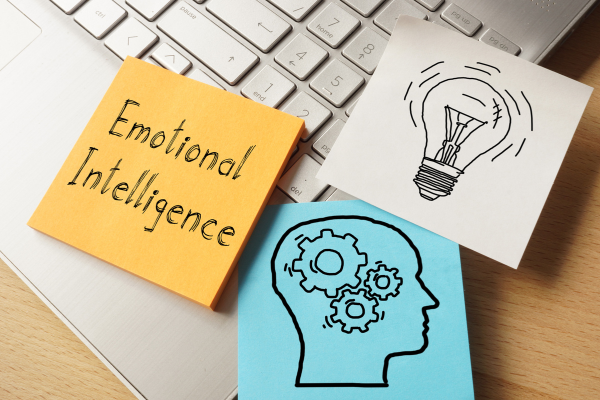
Caregiving is more than just providing medical or physical support. It requires strong emotional awareness and the ability to connect with patients on a deeper level. Emotional intelligence (EQ) plays a key role in building trust, reducing stress, and improving overall well-being for both caregivers and those they care for.
What is Emotional Intelligence?
Emotional intelligence is the ability to recognize, understand, and manage emotions—both in oneself and in others. In caregiving, this skill helps professionals respond to patients’ needs with patience, empathy, and awareness.
When caregivers understand emotions, they can create a calm and supportive environment, making patients feel valued and respected. This improves communication, builds trust, and enhances the overall care experience.
Key Emotional Intelligence Skills for Caregivers
Empathy
Helps caregivers understand what patients are going through.
Allows them to respond with kindness and reassurance.
Encourages stronger connections, reducing feelings of isolation in patients.
Patience
Essential when dealing with individuals who have limited mobility, cognitive challenges, or emotional distress.
Prevents frustration and helps caregivers remain calm in stressful situations.
Allows for better problem-solving and more thoughtful decision-making.
Adaptability
Every patient has unique needs and challenges. Being flexible ensures better care.
Changes in health conditions require quick adjustments in caregiving approaches.
Helps caregivers stay composed when faced with unexpected situations.
Self-Awareness
Caregivers must understand their own emotions to avoid projecting stress onto patients.
Being aware of personal triggers helps in managing reactions.
Supports emotional balance, preventing burnout.
Strong Communication Skills
Patients may struggle to express discomfort, pain, or emotions.
Caregivers with strong communication skills can interpret body language and tone.
Clear and calm conversations build trust and reduce anxiety.

How Emotional Intelligence Impacts Patient Well-Being
Reduces Stress and Anxiety – Patients feel more comfortable when caregivers are calm and understanding.
Improves Cooperation – Trust encourages patients to follow medical advice and treatment plans.
Creates a Positive Environment – Emotional awareness helps caregivers provide reassurance, making care more effective.
Strengthens Relationships – When patients feel heard and respected, they form stronger bonds with their caregivers.
Why Choose a Caregiver with Strong Emotional Intelligence?
Better understanding of patient emotions and concerns.
More effective communication and trust-building.
A higher level of care that supports emotional and physical well-being.
Caregiving is not just about tasks, it’s about human connection.
At Lovehub Caregivers Services, we prioritize emotional intelligence in our caregivers to provide compassionate, patient-centered care.
Contact us today to find the right caregiver for your loved one.
